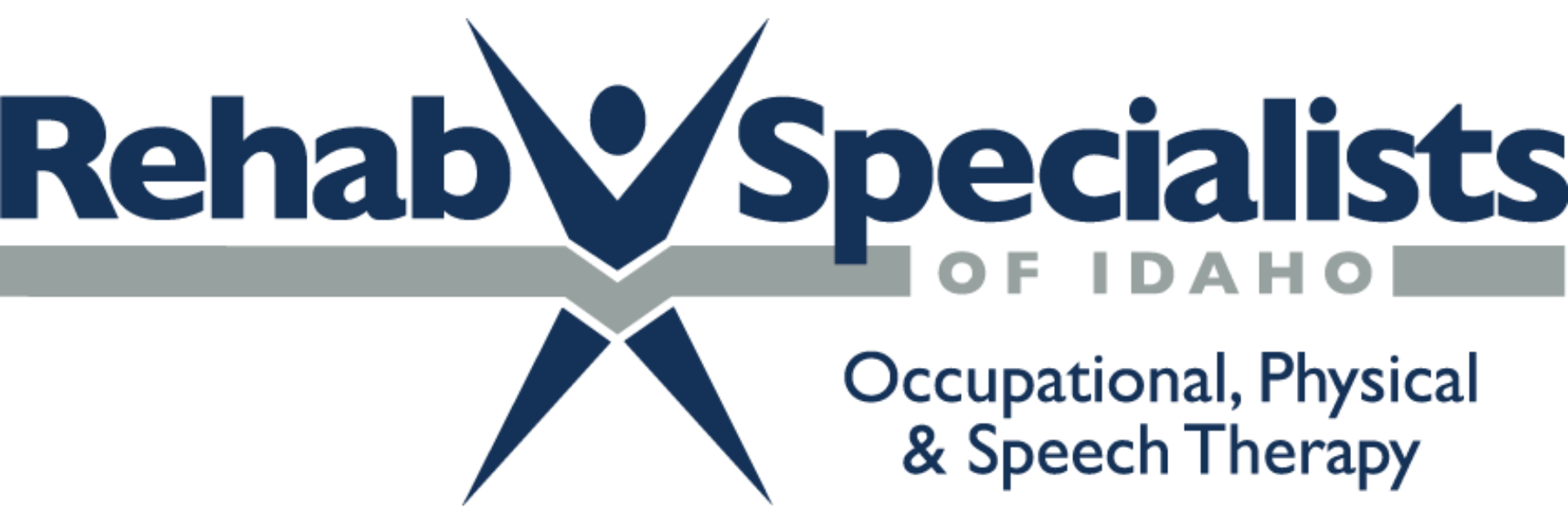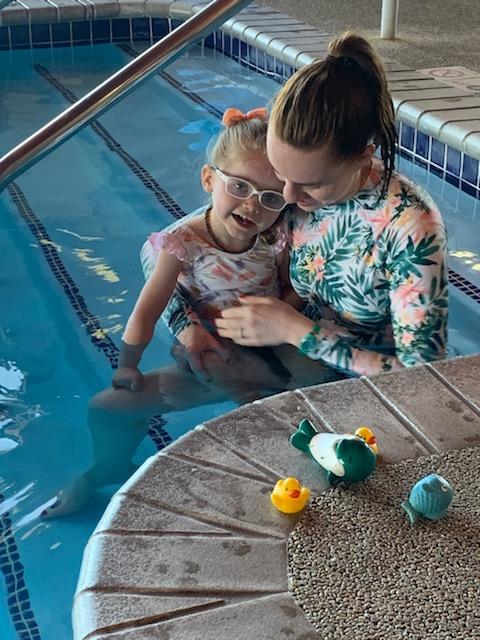As cabin fever begins to set in for all of us anxiously awaiting warmer temperatures, Rehab Specialists of Idaho wants to remind patients of all ages that indoor aquatic therapy is offered year-round.
Currently offered through the Rexburg Pediatric Clinic, Madison Memorial Hospital (inpatients and walk-in adult outpatients), and coming soon to the Rigby Pediatric Clinic, aquatic therapy is a great option for many physical and occupational patients to work on their therapy goals.
“There are a lot of benefits to aquatic therapy. It is a great alternative to land therapy. The kids are very involved and have a lot of fun–to them, we’re playing in the pool, but it’s a good way to participate in a safe environment due to the water buoyancy,” explained RSI physical therapist assistant Maddie Benson who works with a number of children in the water every week.
Aquatic therapy has been popular for years due to water’s natural buoyancy to reduce gravity’s effects and avoid joint strain. At the same time water is hundreds of times more resistive than air, so water-based exercise provides extremely efficient and effective results.
“I work with a little girl who has a version of brittle bones and the sky’s the limit with treatment in the pool because in the water it’s a safe environment where she doesn’t need to put a lot of weight on her limbs. We can do so many things to strengthen her legs that we couldn’t on dry land,” said Benson.
Water also provides additional benefits for occupational therapy goals. RSI occupational therapist Tyson Rothwell explains that in addition to the buoyancy, resistance, and relaxing benefits of water, it can also help with other goals.
“[Water] provides an excellent play medium to explore as well as to address fears many children on the autism spectrum may fear. Ie getting their face wet, holding their breath, and jumping off the side of the pool into the water to work on fear of heights to name a few.”
Both Benson and Rothwell agree that most therapy goals, be they physical or occupational, transfer easily into the water.
“The goals I work on in the pool with a client directly coincides with their personal occupational therapy goals. For example if working on upper extremity coordination or bilateral coordination I can work on hitting and catching the ball and use the water as resistance to build strength. From a sensory standpoint I have several clients that benefit from graded desensitization or gradually warming them up to attempt their fears in fun and positive ways,” Rothwell explains.
Benson feels the same.
“I can look at their regular therapy goals and create an aquatic therapy treatment plan based on what their physical therapist has written for dry land. We do a lot of balance exercises and a lot of walking. If a kid has spasticity, or tight muscles, we can go safely to the hot tub and do stretching and soft tissue myofascial release.”
For more information about aquatic therapy for adults with Rehab Specialists of Idaho, contact the Madison Memorial Hospital Therapy Services Department at 208-359-6500. For information about getting a child near Rexburg or Rigby involved in aquatic therapy, call one of our pediatric clinics–Rexburg: 208-359-9570 or Rigby: 208-228-0625.

